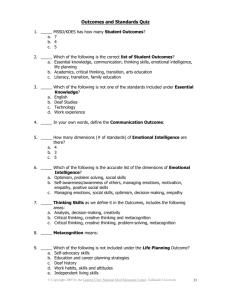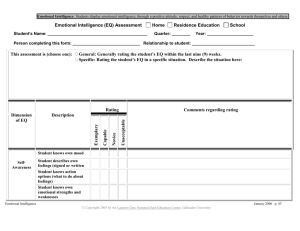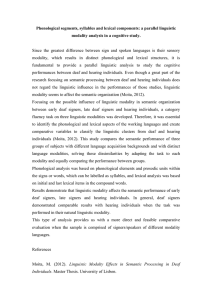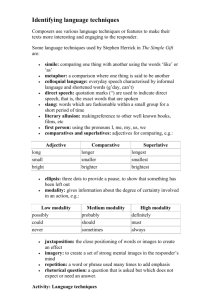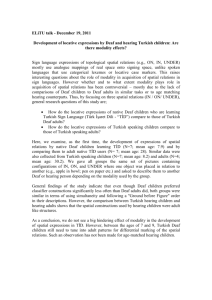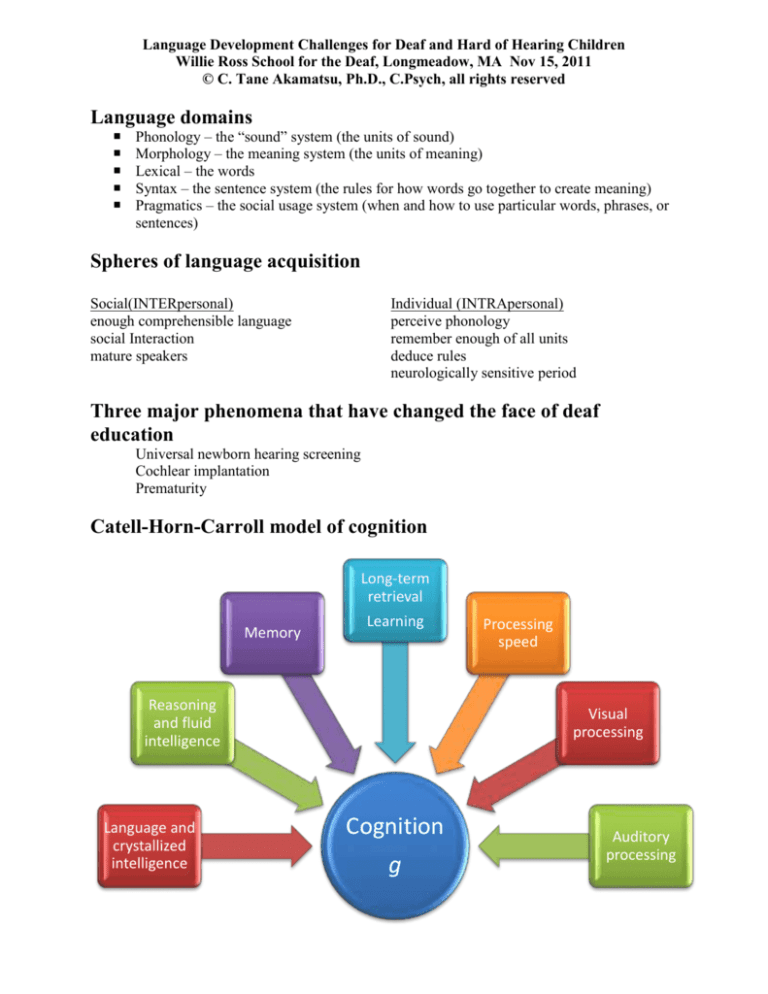
Language Development Challenges for Deaf and Hard of Hearing Children
Willie Ross School for the Deaf, Longmeadow, MA Nov 15, 2011
© C. Tane Akamatsu, Ph.D., C.Psych, all rights reserved
Language domains
Phonology – the “sound” system (the units of sound)
Morphology – the meaning system (the units of meaning)
Lexical – the words
Syntax – the sentence system (the rules for how words go together to create meaning)
Pragmatics – the social usage system (when and how to use particular words, phrases, or
sentences)
Spheres of language acquisition
Social(INTERpersonal)
enough comprehensible language
social Interaction
mature speakers
Individual (INTRApersonal)
perceive phonology
remember enough of all units
deduce rules
neurologically sensitive period
Three major phenomena that have changed the face of deaf
education
Universal newborn hearing screening
Cochlear implantation
Prematurity
Catell-Horn-Carroll model of cognition
Long-term
retrieval
Memory
Learning
Reasoning
and fluid
intelligence
Language and
crystallized
intelligence
Processing
speed
Visual
processing
Cognition
g
Auditory
processing
Language and crystallized intelligence
“Listening”
Ability
General
Information
Lexical
Knowledge
(Vocabulary)
Language
Development
Communication
Ability
“Oral”
Fluency
Language
and
Crystallized
Intelligence
Grammatical
Sense
Important points about language
Language is not modality specific.
Language acquisition and development happens in a specific language, which IS
modality specific.
A language disability is …
- not modality specific.
- a central cognitive problem.
Difficulties with memory, retrieval, speed and auditory/visual processing can impact
language acquisition, development and use.
Images retrieved from:
http://www.troophomeauctions.com/hearing-screening.htm
http://www.glahaiti.org/comingsoon/user_files/Premature%20babies/Premature%20baby%20
C.jpg
http://www.hearingpocket.com/babyonesies.shtml
Contact:
tane.akamatsu@tdsb.on.ca

